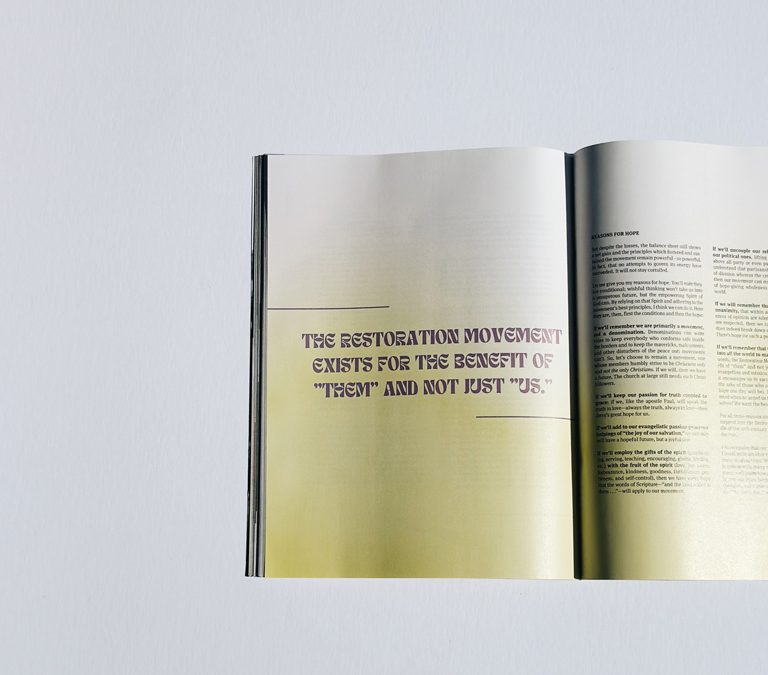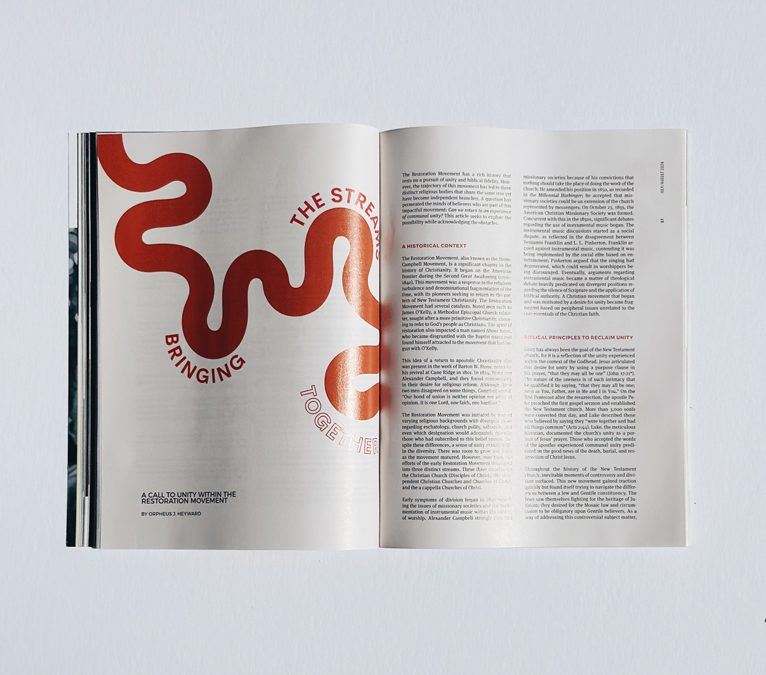
Christian apologist Ravi Zacharias spoke at morning chapel and at an evening banquet at Cincinnati Christian University on April 29.
By David Faust
Why have you devoted so much of your life and ministry to Christian apologetics?
I come from India, where the Christian faith is clearly a minority.1
When you believe something out of deep conviction that has cost you quite a bit and is not in the mainstream, then you have to answer the questions that arise. There is no escaping it, internally or externally. You are constantly surrounded by deep-seated questions of truth. I myself had many questions as a young person, and came to Christ on a bed of suicide at the age of 17. Thus, I became interested in apologetics early on.
Then in 1983, I was on my way back from Amsterdam after being invited by Billy Graham to speak to 10,000 evangelists and itinerants, when I pondered that there were so few people engaged in the arena of apologetics. Most of the preaching in evangelism was geared to the “unhappy pagan.” I thought, what about the “happy pagan”? A year later, Ravi Zacharias International Ministries began, and this year we celebrate 30 years of ministry with a team of apologists around the globe.
The cultural landscape is changing rapidly in America. What changes have impacted the church the most over the last 10 years?
America is living in what I believe is one of the hinges of history that will determine its future. I read the documents of the Founding Fathers and I am fascinated by their insight and brilliance. The late Russell Kirk, who wrote the book The Roots of American Order, examined America”s history. The Founding Fathers believed in the essential connection of life”s sacredness and freedom. If life is sacred, there must be a transcendent moral order. But in an increasingly secular society, life is no longer viewed as sacred.
Our generation today is the product of a time when education has come unhinged from any moral purposes. And yet, there is no rational basis for secularism and it cannot be lived out logically. There have to be some essential sacred ideas in order to even talk about mutuality of respect, tolerance, and freedom. Hence, I believe more and more that the only way we can condemn, for instance, racism logically and morally is by viewing it from the framework of theism. Conversely, secularism or naturalism severs the nerve of intrinsic worth, and we are no more than the accidental collocation of atoms.
It is this understanding of intrinsic worth and purpose that has kept the Western world intact, but more and more, Christianity is being evicted from Western culture. And I”m certain there will not be a vacuum. Rather, a radical form of totalitarian religious belief will take over, because the spiritual always tugs at the heart.
The Islamic worldview is a real challenge because it is comprehensive. It is political, and it has a moral theory, a cultural theory, and a financial theory. It poses a challenge to the life and the lifestyle of the Western worldview because in the West, you are given the freedom to believe and disbelieve. That”s not always true in Islamic nations.
Only Christianity is strong enough to preserve the sacredness of life. Only the gospel of Jesus Christ gives us the tremendous privilege of sacred freedom without imposing faith on anyone. Those who mock this faith will find themselves before long under the oppression of an ideological domination that uses religion to gain political and cultural dominance and will not tolerate the mocking of their beliefs without cruel responses.
Do we need to communicate our faith differently than we did in the past, or are the major questions still basically the same?
I believe it is more the form of communication that is drawing people today than the substance. But if substance is compromised, what does the form really accomplish? As one of my colleagues once said, “It is truth that gives relevance to relevance. Without the truth, relevance becomes irrelevant.” In our attempt to become relevant, we have lost so much of the truth.
If our children and young people don”t hear our voice, they will hear someone else”s. The many avenues into a person”s heart and soul today are almost too numerous to counter, because they invade the imagination and violate reason, and our young people are most vulnerable. The younger they are, the more wrongheaded they become, and the salvage operation is more difficult. We cannot wait until they are in their late teens. We must teach them critical thinking skills when they are young. The best gift we can give them is to help them learn how to evaluate truth.
What practical advice can you offer to Christians who want to explain and defend our faith more effectively?
Learn to think critically. Critical thinking is an analytical process of evaluating the truth component of a statement or idea. If you are looking at a worldview or any challenge to your own worldview, you have to evaluate it on the basis of truth, the coherence of what is being claimed, and then the implications of what this means for your personal life. So there is first an analytical component to it: the truth component, the synthesizing component. Second, there must be an application or an imperative component to it. We must think critically, especially in defending our worldview or in challenging a counter perspective. So come to terms with what the fallacies are and what the laws of logic are.
But most importantly, learn to observe. There are various books on how to argue that involve a more hostile way of winning an argument, but I don”t think that”s what the Christian is all about. Read the books of C.S. Lewis; read books by Francis Schaeffer. Observe how they responded to other worldviews and to their critics.
In warfare, the goal is to destroy the other party. But in Christian engagement, the goal is to win the person who is of the other worldview, not to destroy the person. So as we defend what we believe, let us also do this with gentleness and respect, as 1 Peter 3:15, 16 reminds us. Ultimately, the task of apologetics is to remove the barriers to the gospel and to help the listener see that only Jesus Christ has redemptive power and only God can change the heart.
What resources do you recommend for those who want to learn more about Christian apologetics?
Norman Geisler”s book Come, Let Us Reason addresses the formal fallacies of reasoning. Another book that helped me a great deal years ago was Mortimer Adler”s Ten Philosophical Mistakes. Arlie Hoover”s Don”t You Believe It! Poking Holes in Faulty Logic and Geisler”s When Critics Ask also deal with different fallacies. Beyond Opinion, written by some of RZIM”s [Ravi Zacharias International Ministries] apologists, addresses various worldviews and challenges to the Christian faith.
Our website, www.rzim.org, has a wealth of resources online, from podcasts to articles. For those interested in studying apologetics formally, we have weeklong Summer Schools available, as well as a lengthier master”s level program through our Oxford Centre for Christian Apologetics. You can go to http://www.rzim.org/study/ to see a full list of the many programs we offer.
________
1In his autobiography Zacharias says, “I thank God for the Eastern part of me. My upbringing in India gave me a true understanding of how the Easterner thinks. I don”t have to struggle to figure it out. Likewise, having lived in the West since I was 20, I believe I”ve come to understand how a Westerner thinks. I”ve been given a unique opportunity to learn to think in different languages, to be shaped by different cultures, to have a completely different way of measuring values in order to decipher the between-the-lines hints of the world and, if I may dare say it, the breaking points within each” (Walking from East to West, p. 36).
David Faust is completing 12 years as president of Cincinnati (Ohio) Christian University and beginning a new ministry this summer on the staff of East 91st Street Christian Church, Indianapolis, Indiana.





0 Comments